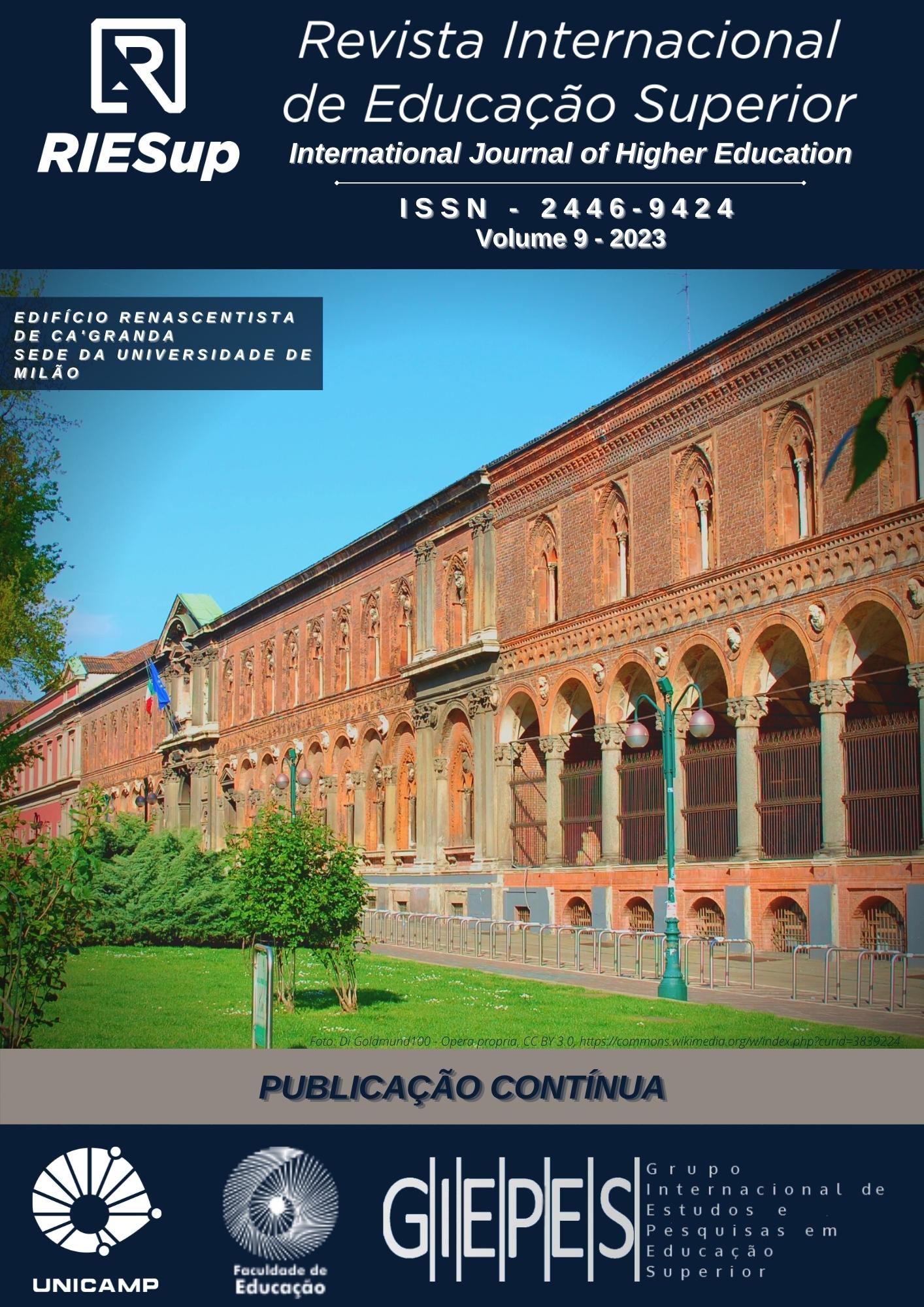Abstract
The medical teaching is basically grounded in a medicine based on evidence, in which the patients are data, submitted to protocols. The narrative based medicine favors the patient’s history, their speech and the context in which their history is inserted. With its relatively recent implementation, it is necessary to know the knowledge of medical students on the subject. This is a cross-sectional study, analytical, that uses the qualitative method and content analysis design. Medical students from the third to the sixth semester included, in two stages: first with an online formulary with a question: "do you know what it is Narrative Based Medicine?", with a binary option of "yes" and "no". The second was a focus group with part of these students. There were 134 participants in the 1st stage, where 123 answered “no” and 11 answered “yes”. In the focus group, three categories emerged. 1. “Language” as the impossibility of detaching it from the patient's narrative. 2. “Empathy” with the need to establish a bond with the patient that would allow anamnesis in a natural way. 3. “Cake’s Recipe / Narrative” is the expression of the stiffness proposed by medical schools in a medical interview and of the students' attempts to remodel it to find greater naturalness in the doctor-patient relationship, fostering the importance of Narrative Medicine. The results of this study show that medical students at this private college have intuitive knowledge about narrative medicine, as it is interwoven with the principles of the institutional teaching program.
References
BARDIN, Laurence. Análise de Conteúdo. 1. ed. São Paulo, SP: Almedina; 2011. ISBN 8527101815.
BIRCK, Vera Regina; KESKE, Humberto Ivan. A Voz do Corpo: A Comunicação Não-Verbal e as Relações Interpessoais. Intercom, São Paulo, 2008. Disponível em: http://www.intercom.org.br/papers/nacionais/2008/resumos/R3-0900-1.pdf. Acesso em: 02 jul. 2020.
CHARON, Rita. O corpo que se conta. São Paulo: Letra e Voz, 2015.
CHARON, Rita; WYER, Peter; NEBM Working Group. Narrative evidence based medicine. Lancet, Inglaterra, v. 371, n. 9609, p. 296-297, 2008. Disponível em: https://www.thelancet.com/article/S0140-6736(08)60156-7/fulltext. Acesso em: 18 abr. 2019.
ELWYN, Glyn; GWYN, Richard. Stories we hear and stories we tell: analysing talk in clinical practice. BMJ, Inglaterra, v. 318, n. 7177, p. 186-188, 1999. Disponível em: https://www.bmj.com/content/318/7177/186/rapid-responses. Acesso em: 18 abr. 2019.
ESCOLA BAHIANA DE MEDICINA E SAÚDE PÚBLICA (EBMSP). Projeto Político Pedagógico do Curso de Medicina. Salvador, BA: EBMSP, 2017. Disponível em: https://www.bahiana.edu.br/upload/bahiana-ppc-medicina-2017-20181113150311.pdf. Acesso em: 18 abr. 2019.
FARIA, Cláudia Sousa Oriente de; NOGUEIRA, Maria Francisca Magalhães. O Corpo: expressão da linguagem não-verbal nas organizações. Revista Panorama - Revista de Comunicação Social, Goiás, v. 4, n. 1, p. 101-107, 2014. Disponível em: http://seer.pucgoias.edu.br/index.php/panorama/article/view/3466. Acesso em: 02 jul. 2020.
FAVORETO, César Augusto Orazem; CAMARGO JÚNIOR, Kenneth Rocha de. A narrativa como ferramenta para o desenvolvimento da prática clínica. Interface - Comunicação, Saúde, Educação, São Paulo, v. 15, n. 37, p. 473-483, 2011. Disponível em: http://www.scielo.br/scielo.php?script=sci_arttext&pid=S1414-32832011000200012&lng=en. Acesso em: 02 jul. 2020.
GREENHALGH, Trisha. Narrative based medicine in an evidence based world. BMJ, Inglaterra, v. 318, n. 7179, p. 323-325, 1999. Disponível em: https://www.bmj.com/content/318/7179/323.1. Acesso em: 18 abr. 2019.
GREENHALGH, Trisha; HURWITZ, Brian. Why study narrative?. BMJ, Inglaterra, v. 318, n. 7175, p. 48-50, 1999. Disponível em: https://www.bmj.com/content/318/7175/48.1. Acesso em: 17 abr. 2019.
GROSSMAN, Eloisa; CARDOSO, Maria Helena C.A. A narrativa como ferramenta na educação médica. Revista HUPE, Rio de Janeiro, v. 13, n. 4, p. 32-38, 2014. Disponível em: https://www.e-publicacoes.uerj.br/index.php/revistahupe/article/view/13945. Acesso em: 02 jul. 2020.
GROSSMAN, Eloisa; CARDOSO, Maria Helena C.A. As narrativas em medicina: contribuições à prática clínica e ao ensino médico. RBEM, Brasília, DF, v. 30, n. 1, p. 6-14, 2006. Disponível em: http://www.scielo.br/scielo.php?script=sci_arttext&pid=S0100-55022006000100002&lng=en&nrm=iso. Acesso em: 02 jul.2020.
HOWLEY, Lisa; GAUFBERG, Elizabeth; KING, Brandy. The Fundamental Role of the Arts and Humanities in Medical Education. Association of American Medical Colleges. Washington, D.C., 2020.
JONES, Anne Hudson. Literature and medicine: narrative ethics. Lancet, Inglaterra, v. 349, n. 9060, p. 1243-1246, 1997. Disponível em: https://www.thelancet.com/journals/lancet/article/PIIS0140-6736(97)03395-3/fulltext#secd10209672e272. Acesso em: 18 abr. 2019.
JONES, Anne Hudson. Narrative in medical ethics. BMJ, Inglaterra, v. 318, n. 7178, p. 253-256, 1999. Disponível em: https://www.bmj.com/content/318/7178/253. Acesso em: 18 abr. 2019.
MERLAU-PONTY, Maurice. The Visible and the Invisible. Evanston, IL: Northwestern University Press, 1968.
MINAYO, Maria Cecília de Souza. O Desafio do conhecimento: pesquisa qualitativa em saúde. 1. ed. São Paulo, SP: Hucitec; 2014. ISBN 9788562938047.
RAMOS, Ana Paula; BORTAGARAI, Francine Manara. A comunicação não-verbal na área da saúde. Rev. CEFAC, São Paulo, v. 14, n. 1, p. 164-170, 2012. Disponível em: http://www.scielo.br/scielo.php?script=sci_arttext&pid=S1516-18462012000100019&lng=en. Acesso em: 02 jul. 2020.
THISLETHWAITE, Jill. The stories we hear and the stories we tell. The Clinical Teacher, Estados Unidos, v. 11, n. 2, p. 77-79, 2014. Disponível em: https://onlinelibrary.wiley.com/doi/full/10.1111/tct.12238. Acesso em: 18 abr. 2019.

This work is licensed under a Creative Commons Attribution 4.0 International License.
Copyright (c) 2022 Revista Internacional de Educação Superior


